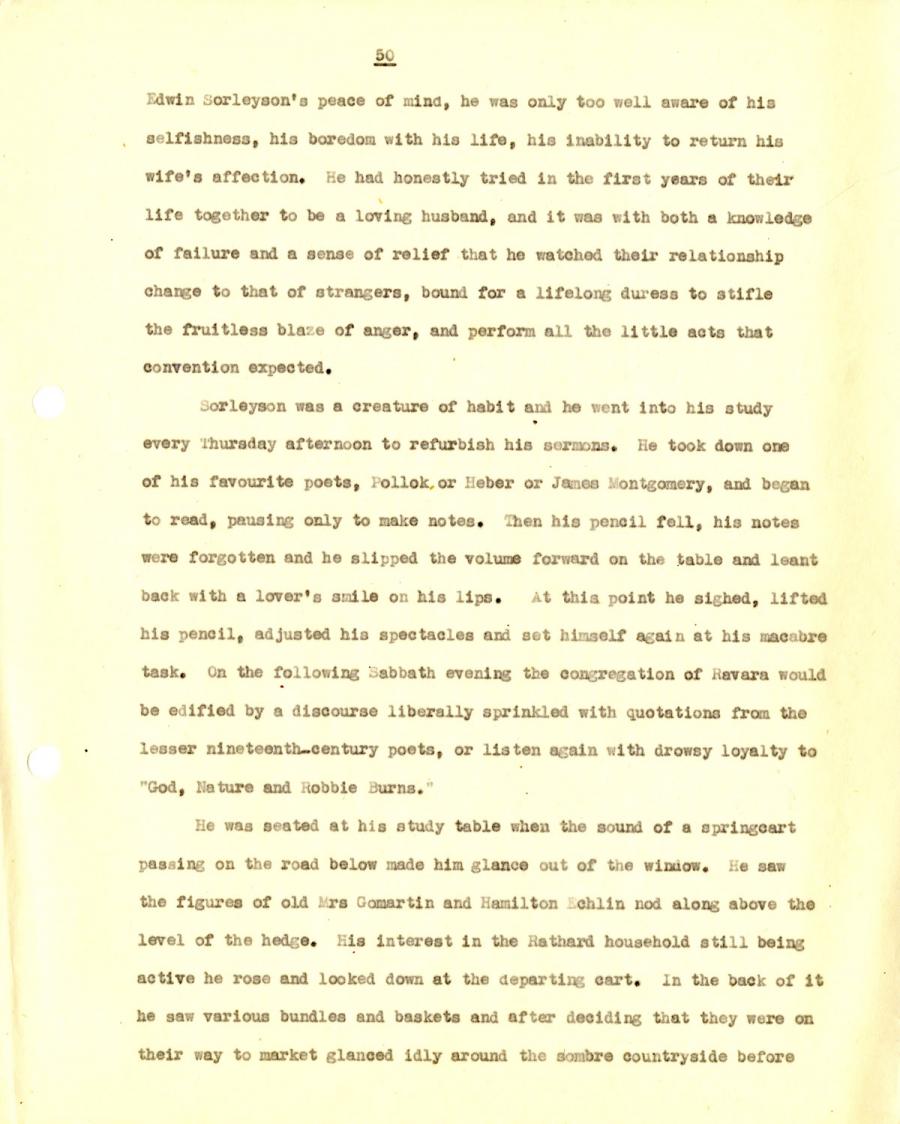50
Edwin Sorleyson’s peace of mind, he was only too well aware of his
selfishness, his boredom with hi3 life, his inability to return his
wife’s affection. He had honestly tried in the first years of their
life together to be a loving husband, and it was with both a knowledge
of failure and a sense of relief that he watched their relationship
change to that of strangers, bound for a lifelong duress to stifle
the fruitless blaze of anger, and perform all the little acts that
convention expected.
Sorleyson was a creature of habit and he went into hisstudy
every Thursday afternoon to refurbish his sermons. He took down one
of his favourite poets, Pollok,or Heber or James Montgomery, and began
to road, pausing only to make notes. Then his pencil fell, his notes
were forgotten and he slipped the volume forward on the table and leant
back with a lover’s smile on his lips. At this point he sighed, lifted
his pencil, adjusted his spectacles and set himself again at his
macabre task. On the following Sabbath evening the congregation of
Ravara would be edified by a discourse liberally sprinkled with
quotations from the lesser nineteenth-century poets, or listen again
with drowsy loyalty to "God, nature and Hobble Burns."
He was seated at his study table when the sound of a springcart
passing on the road below made him glance out of the winnow. He saw
the figures of old Mrs Gomartin and Hamilton Echlin nod along above the
level of the hedge. His interest in the Rathard household still being
active he rose and looked down at the departing cart. In the back of it
he saw various bundles and baskets and after deciding that they were on
their way to market glanced idly around the sombre countryside before














